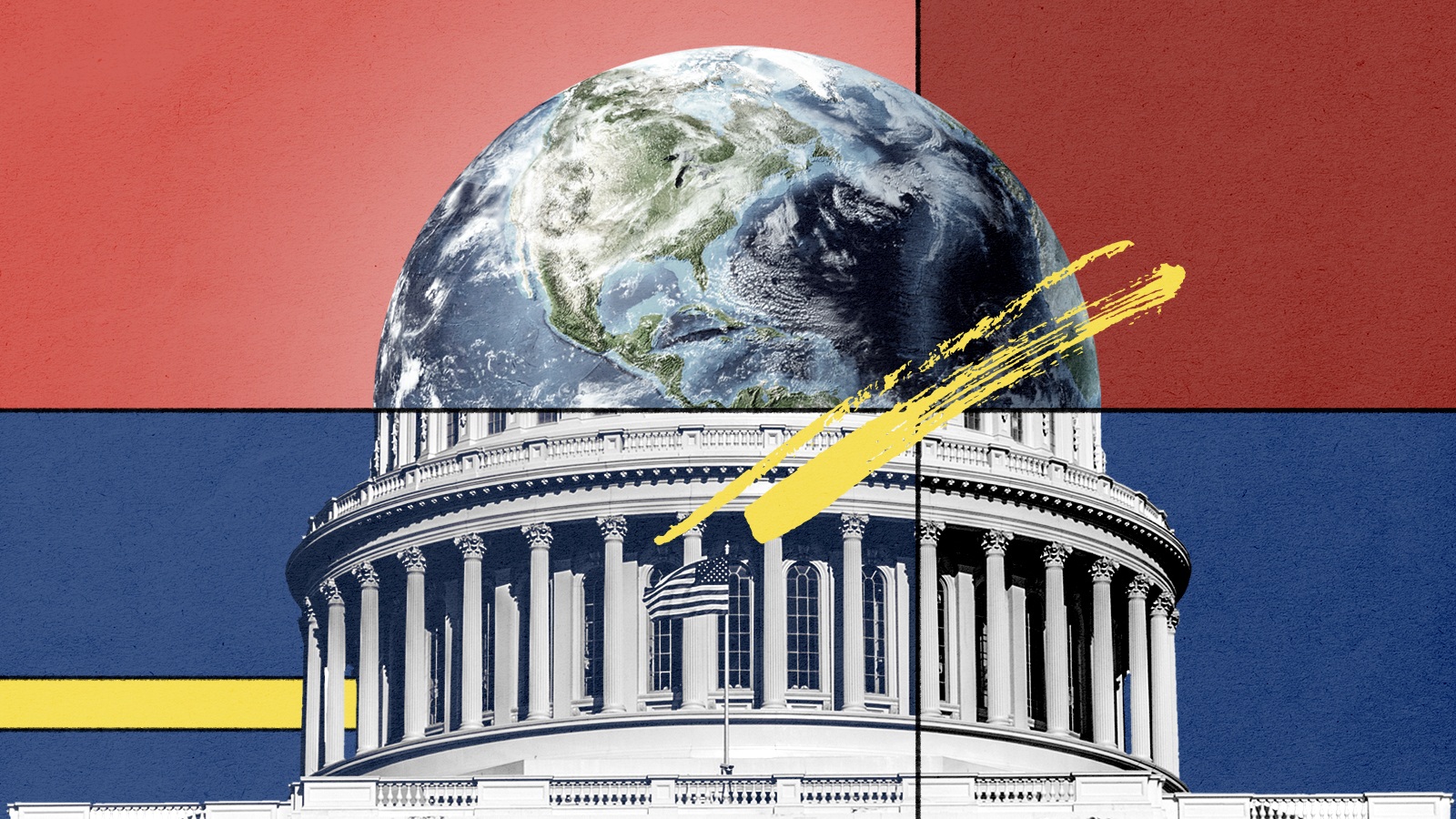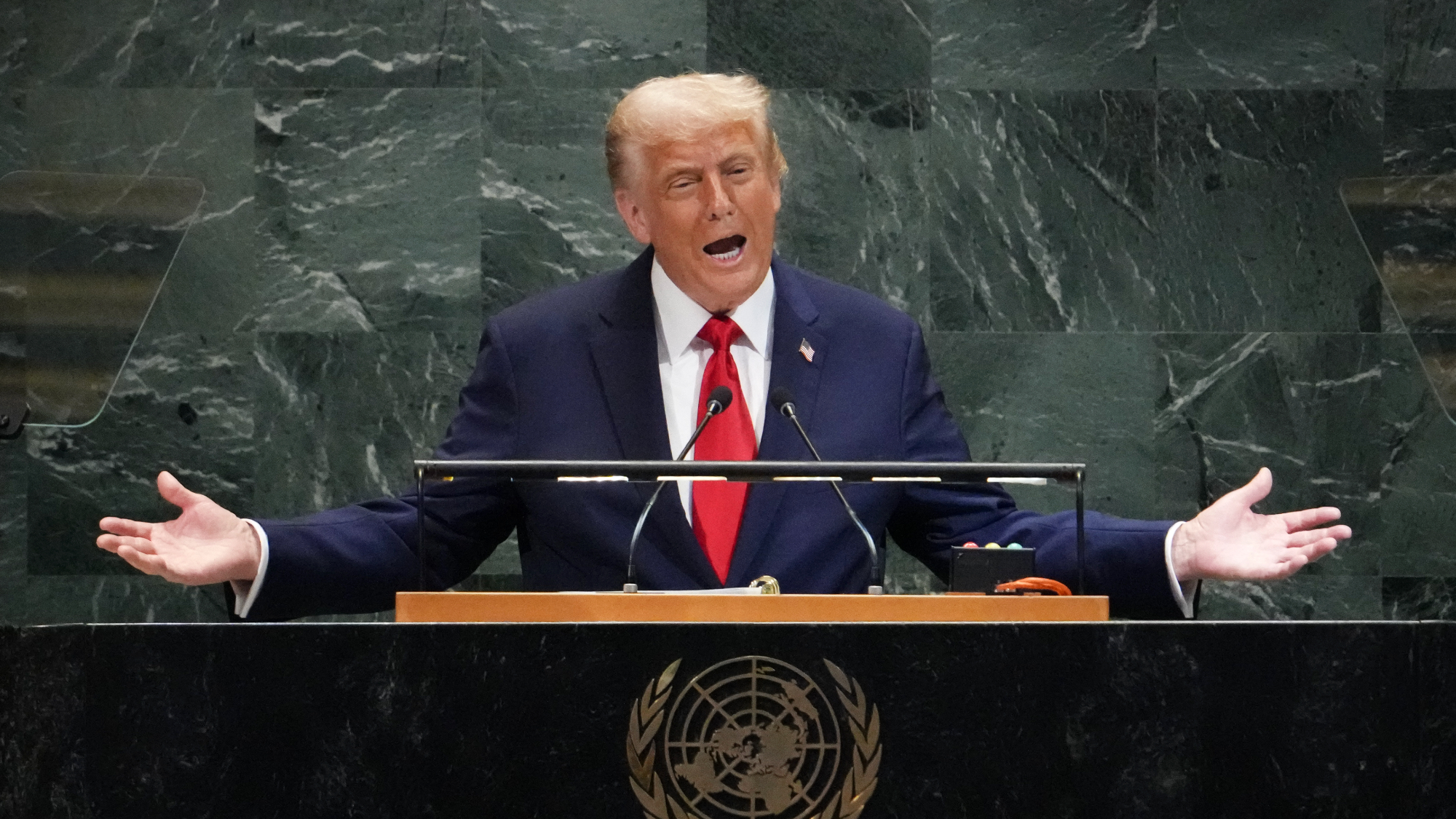The climate effects of the Inflation Reduction Act
What will the Democrats' big bill do for the planet — and where does it fall short?


A free daily email with the biggest news stories of the day – and the best features from TheWeek.com
You are now subscribed
Your newsletter sign-up was successful
In August, Congress passed the Inflation Reduction Act of 2022. The bill includes over $360 billion to address climate change, making it the largest investment to reduce greenhouse gas emissions in history. What will this bill do for climate and where does it fall short? Here's everything you need to know:
What is the Inflation Reduction Act?
The Inflation Reduction Act of 2022 was a piece of legislation negotiated as lawmakers aimed to offset the high inflation rates the country was facing. The bill contains large investments in deficit reduction as well as energy security and climate change, and healthcare. It passed following a deal struck by Senate Majority Leader Chuck Schumer (D-N.Y.), and Sen. Joe Manchin (D-W.Va.), after lengthy deliberation spanning months.
In regards to climate, the bill includes $369 billion in investments in climate and clean energy programs, mostly going toward tax credits for renewable energy, reports ABC News. It also incentivizes the creation of union jobs in the clean energy sector by increasing the tax credit by 10 percent if the clean energy projects are established in communities that have previously relied upon the extraction, processing, transport, or storage of coal, oil, or natural gas.
The Week
Escape your echo chamber. Get the facts behind the news, plus analysis from multiple perspectives.

Sign up for The Week's Free Newsletters
From our morning news briefing to a weekly Good News Newsletter, get the best of The Week delivered directly to your inbox.
From our morning news briefing to a weekly Good News Newsletter, get the best of The Week delivered directly to your inbox.
The package also includes a $9.7 billion loan program for electric cooperatives that buy or build clean energy systems, $4,000 in tax credits for low and middle-income drivers to purchase used electric vehicles, and up to $7,500 in credits for those drivers to buy new electric vehicles.
Why is this considered a win for the climate?
The IRA is currently the most aggressive climate investment that Congress has made. According to analysis by the Office of Management and Budget (OMB), the bill is projected to cut the social costs of climate change by up to $1.9 trillion by 2050. The social cost is the estimation of the economic cost associated with a future of carbon pollution. The IRA's investments put America on track to decrease greenhouse gas emissions by approximately 40 percent below 2005 levels in 2030. The bill also aims to tackle environmental justice issues by improving climate resilience, making clean energy more accessible especially in low-income and native communities, and improving and expanding clean transit options.
President Biden has made climate a pressing issue throughout his presidency, setting an ambitious goal of cutting greenhouse gases at least in half in 2030 and reaching net zero by no later than 2050. He originally proposed his Build Back Better plan, a $1.75 trillion economic and climate package, which included $570 billion in tax credits and investments to tackle climate change. This plan ultimately failed due to disagreement from Manchin resulting in not enough votes in the Senate.
Apart from the hefty push towards renewable energy and pollution reduction, this bill was also a win for diplomacy, with Manchin ultimately agreeing to include the climate package despite rejecting Build Back Better. A number of environmental groups have praised the passage of the Inflation Reduction Act, deeming it a monumental win for clean energy and a future of renewables.
A free daily email with the biggest news stories of the day – and the best features from TheWeek.com
Where does the IRA fall short?
While the bill is monumental in terms of the history of climate legislation, it is still far from the original proposal in Build Back Better, which invested $570 billion in climate provisions. Many still find that there is too much allowance for fossil fuels within the bill, largely due to the compromise reached with Manchin, NPR reports. The IRA still subsidizes the building of new pipelines, guarantees new oil and gas drilling leases, and incentivizes investment in carbon-capture technology, which has not yet been fully developed. All of these factors lead to fossil fuels still being actively used and supported.
In a new development, progressives in Congress are speaking out against the fossil fuel permitting inclusion that was a part of Manchin and Schumer's deal to pass the IRA. Sen. Bernie Sanders (I-Vt.) spoke on the Congressional floor stating, "If the United States Congress goes on record and says, 'Yes we are going to support more fossil fuel reduction, more carbon emissions,' the signal we are sending to our own people and the planet is a terrible, terrible signal." This permit funding would be included in a separate funding bill which will also likely include Ukraine and disaster aid funding.
Another area of criticism comes from low-income and Indigenous communities, especially those located near fossil fuel sites, who argue that the relaxed attitude toward fossil fuels will cause the negative impacts for them, to outweigh the positives. Overall, there is concern that the bill is not strong enough on climate.
The Inflation Reduction Act also has also been criticized for not doing enough to actually reduce inflation. The Penn Wharton Budget Model, a group of economists and data scientists at the University of Pennsylvania, concluded that they have low confidence the bill will have any impact on legislation, Forbes reports. The CBO came to a similar conclusion, however, noted that they predict that in later years the bill will bring down inflation.
Where does this leave us?
Despite some of the concerns, the passage of the IRA has caused a massive surge in clean energy projects across the country. For example, Toyota is investing an additional $2.5 billion in a North Carolina factory to produce batteries for electric cars and hybrids. Honda and LG Energy Solution also announced a joint venture to build a $4.4 billion battery factory, reports The New York Times.
The bill allows companies to have some confidence they will get a return on their investments. However, the process of transitioning to clean energy will likely take place over the course of many years. Despite investments, some hurdles will require new developments, like more efficient ways to transfer wind and solar energy, requiring new infrastructure.
The IRA has simply given companies and Americans an opportunity, however limited, to innovate its shift to cleaner energy sources and methods, which may not have been a possibility before.
Devika Rao has worked as a staff writer at The Week since 2022, covering science, the environment, climate and business. She previously worked as a policy associate for a nonprofit organization advocating for environmental action from a business perspective.
-
 The Olympic timekeepers keeping the Games on track
The Olympic timekeepers keeping the Games on trackUnder the Radar Swiss watchmaking giant Omega has been at the finish line of every Olympic Games for nearly 100 years
-
 Will increasing tensions with Iran boil over into war?
Will increasing tensions with Iran boil over into war?Today’s Big Question President Donald Trump has recently been threatening the country
-
 Corruption: The spy sheikh and the president
Corruption: The spy sheikh and the presidentFeature Trump is at the center of another scandal
-
 Trump’s EPA kills legal basis for federal climate policy
Trump’s EPA kills legal basis for federal climate policySpeed Read The government’s authority to regulate several planet-warming pollutants has been repealed
-
 Trump pulls US from key climate pact, other bodies
Trump pulls US from key climate pact, other bodiesSpeed Read The White House removed dozens of organizations from US participation
-
 The billionaires’ wealth tax: a catastrophe for California?
The billionaires’ wealth tax: a catastrophe for California?Talking Point Peter Thiel and Larry Page preparing to change state residency
-
 Bari Weiss’ ‘60 Minutes’ scandal is about more than one report
Bari Weiss’ ‘60 Minutes’ scandal is about more than one reportIN THE SPOTLIGHT By blocking an approved segment on a controversial prison holding US deportees in El Salvador, the editor-in-chief of CBS News has become the main story
-
 Trump aims to take down ‘global mothership’ of climate science
Trump aims to take down ‘global mothership’ of climate scienceIN THE SPOTLIGHT By moving to dismantle Colorado’s National Center for Atmospheric Research, the White House says it is targeting ‘climate alarmism’
-
 ‘It’s ironic in so many ways’
‘It’s ironic in so many ways’Instant Opinion Opinion, comment and editorials of the day
-
 Newsom slams Trump’s climate denial at COP30
Newsom slams Trump’s climate denial at COP30speed read Trump, who has called climate change a ‘hoax,’ declined to send any officials to this week’s summit
-
 Alaska faces earth-shaking loss as seismic monitoring stations shutter
Alaska faces earth-shaking loss as seismic monitoring stations shutterIN THE SPOTLIGHT NOAA cuts have left the western seaboard without a crucial resource to measure, understand and predict tsunamis
